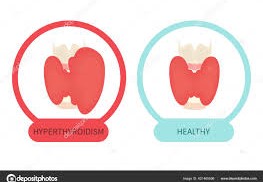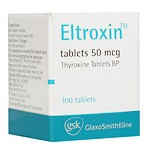Understanding Hypothyroidism of Different Etiologies: Causes, Symptoms, and Treatment


What Is Hypothyroidism and Why Does It Matter?
Hypothyroidism, commonly known as an underactive thyroid, is a condition where the thyroid gland fails to produce enough thyroid hormones to meet the body’s needs. But why does this happen—and what are the different reasons behind it?
Hypothyroidism is not a one-size-fits-all condition. The causes vary and may originate from the thyroid gland itself or from the pituitary or hypothalamus, which control the thyroid. Understanding the diverse causes, or etiologies, of hypothyroidism is essential for accurate diagnosis and effective treatment.
- The thyroid gland produces two key hormones: thyroxine (T4) and triiodothyronine (T3)
- These hormones regulate metabolism, energy, mood, and temperature
- A deficiency can result in fatigue, weight gain, depression, and more
- Hypothyroidism can stem from autoimmunity, medications, surgery, or iodine deficiency
Autoimmune Hypothyroidism (Hashimoto’s Thyroiditis)
Autoimmune thyroiditis, particularly Hashimoto’s disease, is the most common cause of hypothyroidism in iodine-sufficient countries.
- The immune system mistakenly attacks the thyroid gland
- Over time, the gland becomes inflamed and damaged, reducing hormone production
- Hashimoto’s disease tends to run in families
- It often coexists with other autoimmune conditions like type 1 diabetes or celiac disease
Symptoms may include:
- Fatigue
- Weight gain
- Constipation
- Dry skin and thinning hair
- Depression and memory issues
Early diagnosis through antibody testing and thyroid hormone levels is crucial in managing the disease effectively.
Iatrogenic Hypothyroidism (Post-Surgery or Radiation)
Some individuals develop hypothyroidism after medical treatments that affect the thyroid gland.
- Thyroidectomy (surgical removal of the thyroid) is often performed due to cancer or nodules
- Radioactive iodine treatment for hyperthyroidism can destroy thyroid tissue
- External radiation therapy for cancers in the neck area may also impact thyroid function
Key points:
- This form of hypothyroidism is usually permanent
- Regular monitoring and lifelong thyroid hormone replacement are required
- Symptoms often appear gradually after treatment unless hormone therapy is initiated promptly
Drug-Induced Hypothyroidism
Certain medications can interfere with thyroid hormone production or metabolism.
Common culprits include:
- Lithium (used in bipolar disorder)
- Amiodarone (used in heart rhythm disorders)
- Interferon-alpha and interleukin-2 (used in cancer and hepatitis treatments)
- Tyrosine kinase inhibitors (used in cancer therapies)
How drugs affect the thyroid:
- They may impair hormone synthesis
- They can block hormone release or alter immune response
- Regular thyroid function testing is necessary when using these drugs
- Drug-induced hypothyroidism may be reversible once the medication is stopped, though sometimes it becomes permanent.
Congenital Hypothyroidism (Present at Birth)
Some babies are born with a thyroid gland that is absent, underdeveloped, or malfunctioning.
- This condition may be detected through newborn screening programs
- If untreated, it can lead to intellectual disability and stunted growth
- Early treatment ensures normal development
Causes include:
- Genetic mutations
- Thyroid dysgenesis (improper thyroid development)
- Inborn errors of thyroid hormone synthesis (dyshormonogenesis)
Prompt diagnosis and treatment with levothyroxine can prevent long-term complications.
Secondary and Tertiary Hypothyroidism (Central Hypothyroidism)
In these less common forms, the problem doesn’t lie in the thyroid itself but in the brain structures that control it.
Causes:
- Pituitary tumors
- Head trauma
- Infections or inflammation of the brain
- Congenital defects of the pituitary or hypothalamus
How it works:
- The pituitary fails to produce thyroid-stimulating hormone (TSH)
- The hypothalamus fails to signal the pituitary via thyrotropin-releasing hormone (TRH)
- This leads to decreased stimulation of the thyroid gland and reduced hormone output
These cases are more complex and require evaluation by an endocrinologist.
Treating Hypothyroidism with Levothyroxine (Eltroxin)
Hypothyroidism of any etiology typically requires hormone replacement therapy. Levothyroxine, known by brand names such as Eltroxin, is the standard treatment. It is a synthetic form of thyroxine (T4) and helps restore normal hormone levels.
Why Levothyroxine Works:
- Mimics the body’s natural hormone
- Normalizes metabolic function
- Alleviates symptoms like fatigue, cold intolerance, and depression
- Safe for long-term use when properly dosed
Eltroxin: A Trusted Option
Eltroxin is a widely prescribed and reliable brand of levothyroxine.
It offers:
- Accurate dosing in various strengths
- Proven effectiveness in restoring thyroid balance
- A consistent formulation trusted by physicians worldwide
- Patients using Eltroxin should have regular thyroid function tests to adjust dosage and ensure symptom control.
- Consistency in brand use is often recommended to avoid variability in absorption and efficacy.
Living with hypothyroidism can be challenging, especially when the cause is unclear or multifactorial. However, understanding the root of the condition—be it autoimmune, congenital, drug-induced, or central in origin—empowers patients and healthcare providers to tailor treatment effectively. With proper diagnosis and a consistent treatment plan involving levothyroxine like Eltroxin, most individuals can manage their symptoms and lead healthy, productive lives.
Article Post:Editorial Team of RXShop.md
(Updated at Jun 6 / 2025)

